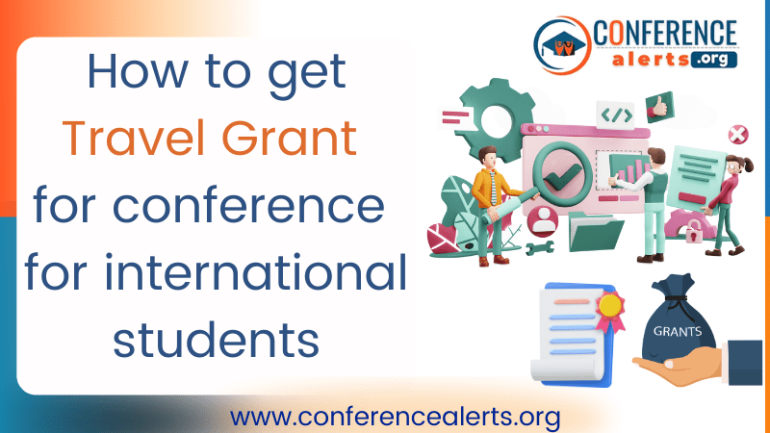International students have great possibilities to broaden their academic horizons, connect with professionals, and present their research at conferences. Here in this article, we will guide you How to get travel grant for conference for international students.
How to get travel grant for conference for international students
The capacity to attend international important events is sometimes hampered by financial limitations. Thank goodness, numerous institutions, organizations, and foundations provide travel aid for students from abroad. We will examine the process of acquiring travel grants in this post, offering insightful information and helpful advice to assist international students in effectively securing financing for conferences.
Plan ahead and begin early
Planning and preparation must be done carefully in order to obtain a travel grant. Find conferences that are compatible with your research interests and academic objectives to start. Once you’ve decided on a conference, look into the international student travel grants that are offered. Early planning increases your chances of obtaining financial support by allowing you to assemble the required paperwork and meet application deadlines.
FInd Upcoming International conferences
Funding Opportunities for Research
Find organizations, institutes, and foundations that offer travel grants to overseas students by conducting a thorough search. Investigate regional and global resources, such as governmental entities, educational institutions, nonprofits, and trade groups. Websites, scholarship databases, and academic advisors can all offer useful details about available funds. Review each grant’s qualifying conditions, submission guidelines, and due dates very carefully.
Write a Strong Application
It’s important to write a strong application when requesting travel funding because it will showcase your accomplishments, research potential, and the advantages of going to the conference. Explain your goals for attending the conference in detail, paying particular attention to how it will advance your academic and professional goals. Make careful to customize your application to the particular award, proving that you did a thorough study on the company and its goals. To make your application better and guarantee that it stands out from the competition, ask mentors, teachers, or colleagues for their input.
Prepare Supporting Documentation
Supporting documentation, such as an updated CV or résumé, academic transcripts, reference letters, and a comprehensive budget describing your projected expenses, are typically required for travel grant applications. In ahead, gather these documents and make sure they are current. Your application can be greatly improved by reference letters from professors or research supervisors who can attest to your skills and potential.
Show Financial Need and Impact
Students from minority backgrounds or those with inadequate financial resources are given preference when applying for travel funding. Explain your financial necessity and how getting the grant will allow you to attend the conference in detail in your application. Highlight any additional benefits of your involvement, such as the chance to present research findings, participate in cross-disciplinary conversations, or network with professionals in your field. Your application can be greatly improved by showing how participating in the conference can help you achieve your long-term academic and professional goals.
Follow Up and Express Gratitude
Contact the grant sponsor after submitting your application to confirm receipt and find out when the grant recipients will be chosen. If you’re successful, thank the company for the chance and swiftly give any more information that was needed. If your application is rejected, get feedback to make it better the next time. Keep in mind that rejections are normal and do not represent your potential or skills. Take lessons from the experience, and keep looking into additional funding options.
Final words
Although obtaining a travel grant for international students attending conferences may initially seem difficult, it is actually doable with careful planning, exhaustive research, and an effective application. International students can improve their academic experience, broaden their network, and contribute significantly to their fields of study by making the most of the tools available to them and taking a proactive approach.

